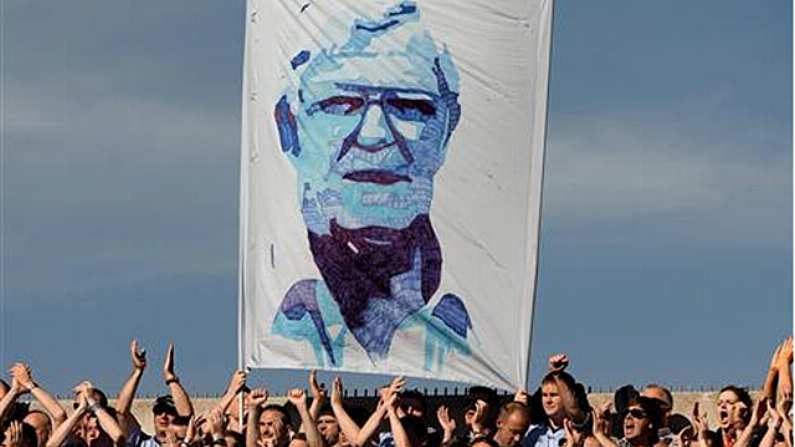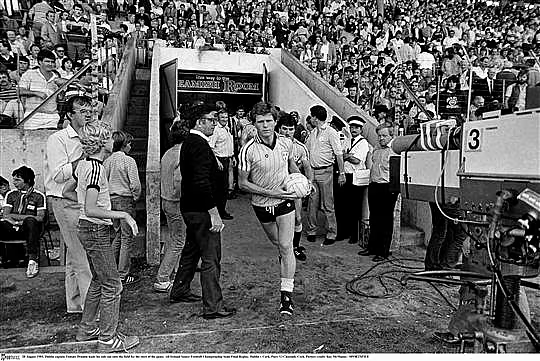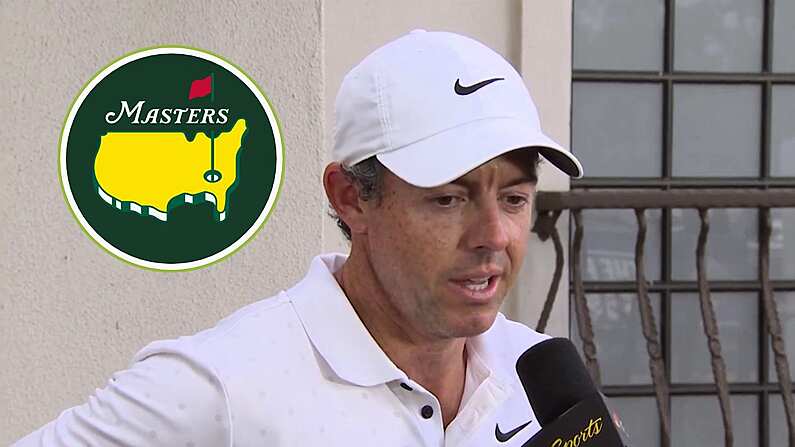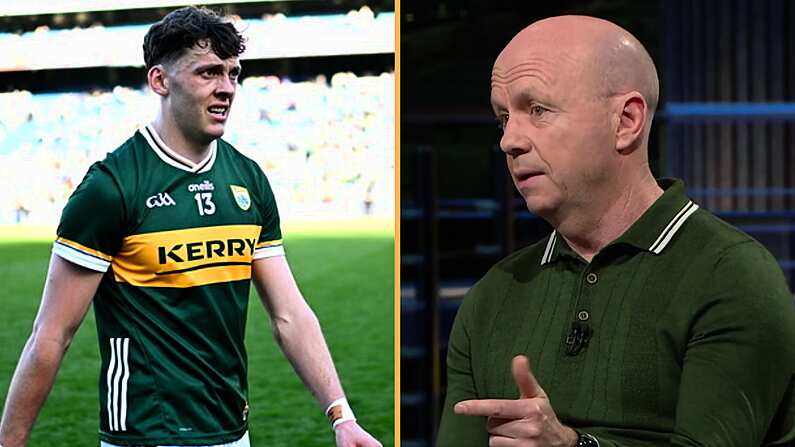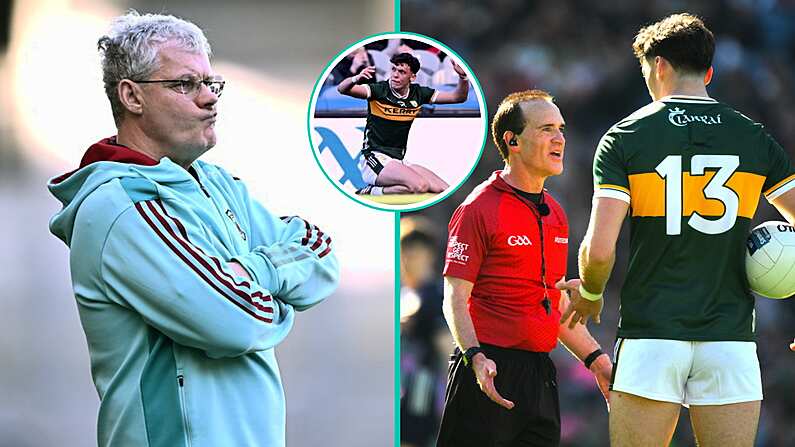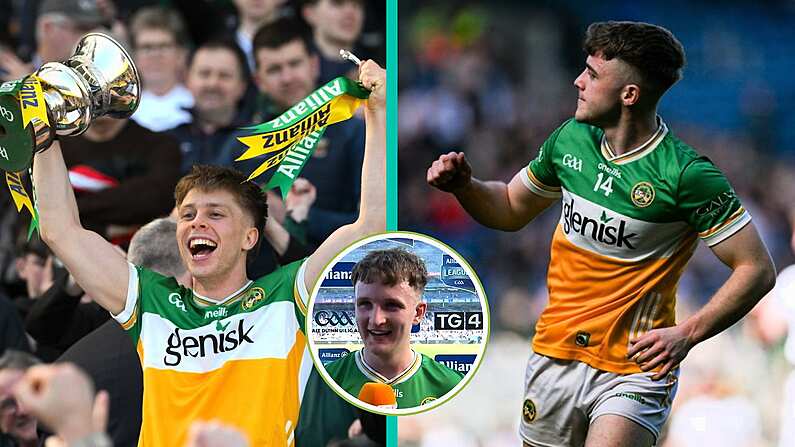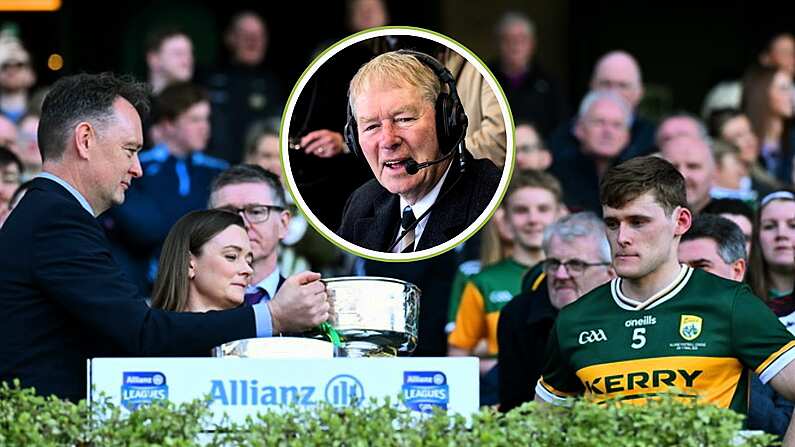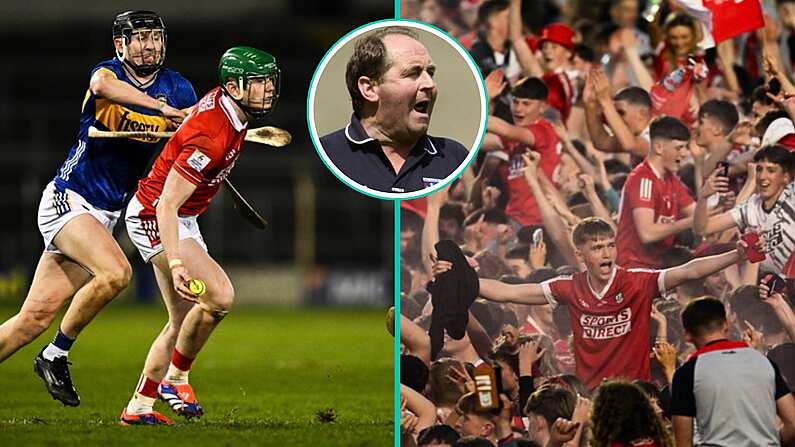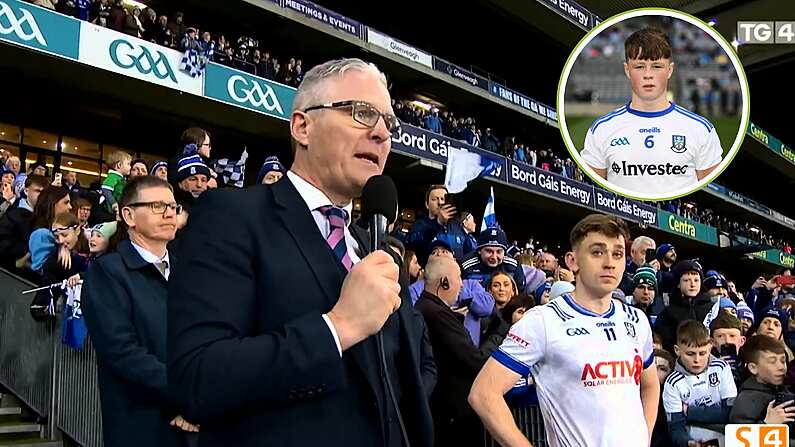By the end of 1973, Dublin hadn't appeared in a Leinster final for eight years. During this period, teams like Kildare, Louth, Laois, Westmeath and Longford had too much class for them.
The Dublin public lost interest in their Gaelic football team.
Gay O'Driscoll, Dublin corner back during the Heffo years, told one documentary that he had been playing senior football for Dublin since the mid-1960s and not one of his work colleagues knew it.
Kevin Heffernan arrived into this scene at the end of 1973. Within a year, Dublin football had changed forever. The story is being re-told in a documentary 'Kevin Heffernan - Wrapped Up In Blue'. Friends, family and former players will attempt to give an insight into one of the most fascinating men in the history of the GAA.
Tommy Drumm won three All-Irelands with the Dubs between 1976 and 1983, captaining the '12 apostles' (or 'dirty dozen' depending on your perspective - though surely it was the trio who were sent off who were the 'dirty' ones?) to the 1983 All-Ireland final.
He spoke to Balls.ie about how Heffernan revolutionised the game in the mid-1970s. During that brief interregnum in which championship matches lasted 80 minutes (1970-75), Heffo spied that there was a great opportunity to make gains on the competition in the fitness department.
The physical side of it in terms of training was huge. Dublin teams had never been put through the riggers that Kevin put the team through in '74. He decided he needed to steal a march on the competition and try and raise the physical side of the game. He thought the underlying quality of skills were good. But he just needed to have a team that could last the distance. And you must remember that some of the championship games in those days were longer than they are today so levels of fitness were maybe an opportunity to catch the opposition by surprise.
Heffernan was a forbidding presence in the dressing room. He was not matey with the men under his command. Players were desperate to win his respect.
He was a very demanding individual. If people didn't turn up for training he wasn't going to consider them for a place in the team. He had a very effective way of getting into people's heads. He wasn't somebody that you'd attempt to cross in any shape or form.
Was there a fear factor there?
Kevin wouldn't have been a conversationalist. There was an innate respect that he had from people. He had a presence. You just instinctively knew that if you were going to gain his respect, you had to perform and out-perform. That's just speaking personally. That's what I took out of it. And if he gave you an opportunity, by God, you had to grasp it in both hands because there mightn't be another one coming down the tracks.
The worth of Heffernan's demanding sessions was plain to see in the closing stages of games. Dublin invariably finished strongly.
Our strongest quarter was always our last quarter. We never fell away in a game. Kerry were the one team that could stay with us. They played a really fast style of football, supporting the guy in possession. Their level of fitness was right up there so that was never an issue in Dublin-Kerry games. I think other teams we played against never had it in the last quarter the way Dublin did. It never seemed like we were under pressure from a fitness point of view. We always believed that we had what it took to take us out the other end.
Dublin won three All-Irelands in the 1970s and many have just assumed that all three were won under Kevin Heffernan's direction. This is not so.
Heffo retired abruptly after the 1976 All-Ireland victory. With the players' support, centre-forward Tony Hanahoe became player-manager for the 1977 season.
Dublin's performance level hardly dipped. They won another All-Ireland, defeating Kerry in a memorable semi-final and then destroying Armagh in the All-Ireland final.
Possibly regretting his early retirement, Kevin Heffernan simply strode back into the manager's job. A number of players, most vocally David Hickey, were unhappy with the manner in which Hanahoe was brushed aside. Drumm suggests that Heffernan was perhaps a bit surprised that the Dubs had thrived in his absence.
One or two of my teammates would have opinions around that. My memory is very clearly the day that Kevin decided to step down it took us all by surprise. Somebody had to step into the breach. The team was supportive of Tony. He never hesitated. He was absolutely brilliant in terms of team-talks and adding another dimension to the way that Kevin used to approach the team talks. He did an amazing job as player-manager in '77.
My opinion was that maybe Kevin needed Dublin and maybe he was a bit surprised that we did as well when he wasn't there and he just wanted to get back involved again.
He kinda just moseyed back in and we all just accepted it because he was such a vital part of the organisation up to a year before.
So Heffernan wasn't formally ratified as Dublin manager for the 1978 season?
(laughs) I think so. I think maybe there was a conversation and that was it. But you can imagine the respect that Heffernan would have had in the game at that stage. It was Tony's call and Tony obviously supported the move. I think Tony hasn't got the recognition for having done what he did in 1977. People I think assumed, in the fullness of time, that Kevin had actually looked after the team in '77 as well and that was not the case.
Heffernan's second spell in charge of the Dubs lasted from 1978 to 1985, a period in which Kerry regained their ascendancy in the Dubs-Kerry fixture. Heffo's team lost four All-Ireland finals to Kerry in his second stint.
They did scoop another All-Ireland in deeply controversial circumstances, holding off Galway in the final despite playing with two less men.
Heffo may have played a part in Dublin's bizarre goal that day. Galway goalkeeper Padraig Coyne fired his kickout into the ferocious wind. It only travelled about 30 metres.
In the meantime, Heffo had scampered onto the field (a controversial issue at the time) to attend to Joe McNally who was on a heap on the ground. According to Galway wing back Seamus McHugh, Coyne 'got involved verbally with Heffo' (one can imagine the nature of the conversation).
This ill-advised natter delayed the goalkeeper for a crucial second. The ball landed in Rock's chest and he fired a snap shot goalwards. Coyne made a Paddy Cullen-esque attempt to get back to his line. The wind wasn't his friend and the ball beat him to the net.
Alas, Drumm was at the other end of the field.
- There was quite a number of stories told that day. That was only one of them (laughs)
-Do you want to share any of them?
-No, no (laughs).
Kevin Heffernan: Wrapped up in Blue,’ is available to buy for €14.99 from Golden Discs HMV, Xtravision, Easons, Tower Records, Amazon, the Irish Film Institute, JCs Supermarket and Jones Garden Centre.
Read more: Announcing The Nominees For 2015 Balls.ie Man Of The Year

